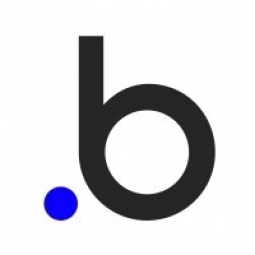Technology Category
- Platform as a Service (PaaS) - Application Development Platforms
Applicable Industries
- Cement
- Equipment & Machinery
Use Cases
- Building Automation & Control
About The Customer
Dream Day is designed for engaged couples planning a wedding in New Zealand. The app provides a range of online tools to help couples navigate the complex process of planning a wedding. It offers a checklist, budget, and day-of timeline, all designed to assist couples with their planning. The tools come with pre-filled suggestions to help couples get started and understand what's involved in planning a wedding. In addition to helping couples plan their wedding, Dream Day also provides a platform for wedding vendors in New Zealand to showcase their services and manage their bookings. Vendors can subscribe to a tier and create a listing, allowing them to advertise their services to couples using the app.
The Challenge
Dream Day, an online wedding planner app for engaged couples in New Zealand, was founded by Harry and Rachel Brown. The couple identified a gap in the market during their own wedding planning process in 2018. They found that the options available to them were either to hire an expensive wedding planner or to manage everything themselves, which involved keeping track of numerous spreadsheets and notebooks. They also realized that planning a wedding was a daunting task for many couples who were unfamiliar with the process and unsure of how to set a budget. Furthermore, they wanted to create a platform that would help promote local businesses and allow wedding vendors in New Zealand to showcase their services. However, their initial attempt to develop the app with a freelance developer was unsuccessful, leaving them with an unfinished project and no remaining funds.
The Solution
Despite the initial setback, Harry and Rachel were determined to bring their vision to life. They discovered no-code tools like Bubble, which allowed them to build a complex web app without the need for extensive coding knowledge. Bubble's no-code platform enabled them to build a web app with the complexities and functionality needed for their users. They were able to create a range of online tools for couples to use in planning their wedding, including a checklist, budget, and day-of timeline. These tools came with pre-filled suggestions to help couples get started and understand what's involved in planning a wedding. They also created an online marketplace for vendors to advertise their services and manage their bookings. The marketplace is accessible to both logged in and non-logged in users, with certain features like direct messaging to vendors and leaving reviews limited to couples who have signed up for a free account.
Operational Impact
Quantitative Benefit

Case Study missing?
Start adding your own!
Register with your work email and create a new case study profile for your business.
Related Case Studies.

Case Study
Smart Water Filtration Systems
Before working with Ayla Networks, Ozner was already using cloud connectivity to identify and solve water-filtration system malfunctions as well as to monitor filter cartridges for replacements.But, in June 2015, Ozner executives talked with Ayla about how the company might further improve its water systems with IoT technology. They liked what they heard from Ayla, but the executives needed to be sure that Ayla’s Agile IoT Platform provided the security and reliability Ozner required.

Case Study
IoT enabled Fleet Management with MindSphere
In view of growing competition, Gämmerler had a strong need to remain competitive via process optimization, reliability and gentle handling of printed products, even at highest press speeds. In addition, a digitalization initiative also included developing a key differentiation via data-driven services offers.

Case Study
Predictive Maintenance for Industrial Chillers
For global leaders in the industrial chiller manufacturing, reliability of the entire production process is of the utmost importance. Chillers are refrigeration systems that produce ice water to provide cooling for a process or industrial application. One of those leaders sought a way to respond to asset performance issues, even before they occur. The intelligence to guarantee maximum reliability of cooling devices is embedded (pre-alarming). A pre-alarming phase means that the cooling device still works, but symptoms may appear, telling manufacturers that a failure is likely to occur in the near future. Chillers who are not internet connected at that moment, provide little insight in this pre-alarming phase.

Case Study
Premium Appliance Producer Innovates with Internet of Everything
Sub-Zero faced the largest product launch in the company’s history:It wanted to launch 60 new products as scheduled while simultaneously opening a new “greenfield” production facility, yet still adhering to stringent quality requirements and manage issues from new supply-chain partners. A the same time, it wanted to increase staff productivity time and collaboration while reducing travel and costs.

Case Study
System 800xA at Indian Cement Plants
Chettinad Cement recognized that further efficiencies could be achieved in its cement manufacturing process. It looked to investing in comprehensive operational and control technologies to manage and derive productivity and energy efficiency gains from the assets on Line 2, their second plant in India.

Case Study
Integration of PLC with IoT for Bosch Rexroth
The application arises from the need to monitor and anticipate the problems of one or more machines managed by a PLC. These problems, often resulting from the accumulation over time of small discrepancies, require, when they occur, ex post technical operations maintenance.







